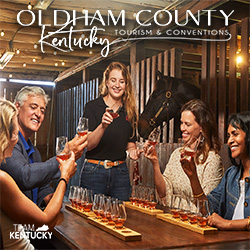Many of us in the U.S. have heard younger generations sing along to decades-old standards likeNeil Diamond’s “Sweet Caroline” or John Denver’s “Take Me Home, Country Roads”. Those songs and others transcend age barriers and seem to be passed along from one generation to the next as musical rites of passage.
Listening to young revelers at Germany’s iconic beer festivals, dressed in lederhosen and dirndls with steins raised, sing those American standards was unexpected. The effect for me was camaraderie; I immediately felt welcome at these centuries-old German celebrations.
Augsburg
My Historic Highlights of Germany tour during the country’s fall beer festival season began in Augsburg, where I joined my German American host, Ted Keppler, for a few days of toasting, tasting and traveling through Bavaria and Thuringia, two German states. Augsburg in Bavaria became a European center of commerce after the Romans settled there in 15 B.C. The area’s water supply from alpine lakes was an energy source they could harness.
Water systems created between the 14th century and 17th century ultimately earned Augsburg a UNESCO World Heritage Site distinction. The city’s water towers, canals and waterwheels are fascinating for the ancient technologies they illustrate. They are among Augsburg’s most charming features.
My first German dinner was at Riegele Wirtshaus, a revered Bavarian restaurant whose brewery dates to 1386. My host ordered Augsberger Fladlesuppe, a flavorful broth garnished with pancake strips; Brauhaus Wurstsalat, a marinated sausage salad; and Knusprige Schweinshaxe, a succulent pork knuckle entree. With my meal, I enjoyed a Riegele Hefe Weisse beer, a wheat beer that pairs with many German dishes. Afterward, we walked through the city to have another hefeweizen on the Fuggerhauser complex’s crowded Damenhof Court terrace.
Augsburg Cathedral, a Catholic church featuring Romanesque and Gothic architecture, was constructed in the 11th century and renovated three centuries later. It contains the oldest stained glass windows in Germany, and its intimate Dom Marian Chapel is a cherished site for weddings. Its ancient underground crypt is illuminated by an altar window that has been backlit by sunlight for centuries.
We visited the Augsburger Puppenkiste museum, where dozens of school-aged kids gathered for a matinee. This puppetry collection showcases handmade characters from a celebrated art form. German fairy tales have been performed with marionettes for centuries.
Augsburg’s Fuggerei social project has endured for 500 years since its founder, Jakob Fugger, built it to provide indigent housing for city residents. Fugger was an affluent merchant who helped fund the Hapsburg Empire and assuaged his “wealth guilt” by creating this affordable gated community. His residents agreed to send three prayers daily to God that included intercession on his behalf.
That evening, Keppler and I headed to the first of two beer festivals on the trip, the Augsburg Plarrer, a celebration that has endured for generations. A boisterous carnival setting greeted us, where families gathered for rides and enjoyed sizzling sausages fresh off the grill.
We found our seats in the cavernous festival tent, and Keppler ordered us both a traditional “festbier,” a local Helles beer served in a one-liter stein. He then ordered me a festival favorite, Hendl und Kartoffelsalat, seasoned rotisserie chicken served with potato salad. Keppler immediately taught me that a proper toast in Germany requires locking eyes with your tablemates.
A festive band played on a massive stage, and college-aged kids at tables stood to sing along. These boisterous patrons make the event. The German standard, “Ein Prosit,” translated “A Toast,” is played frequently throughout the night. It’s tradition to stop conversations, sing along and toast your tablemates — Prost!
Regensburg
The Danube River intersects the iconic Bavarian city of Regensburg, its banks forever united by a medieval masterpiece: the 900-year-old Stone Bridge. Regensburg’s original Roman settlement began 2,000 years ago on the east bank, and its Porta Praetoria Roman Gate endures as a testament to Rome’s masterful masons.
For lunch, Keppler and I grabbed a Rote Knacker sausage in a bun in the Neupfarrplatz square. This grilled sausage sandwich garnished with spicy horseradish, sweet mustard and pickle was my favorite food discovery of the week.
My tour of Regensburg’s medieval core began in that square where stone markers define the site of the Jewish synagogue that existed 500 years ago. Jewish residents were expelled in the 16th century, but the synagogue’s cellar remains. The Neupfarrkirche Protestant church stands nearby, and Regensburg’s Christmas markets have brightened this square’s holidays for 150 years.
From the ninth to the 13th centuries, local merchants were among Europe’s wealthiest. They competed to build the highest towers for their residences or offices. These medieval towers and other sites, including Stone Bridge, have earned Regensburg. A UNESCO World Heritage Site distinction.
America’s discovery in 1492 began Regensburg’s decline as a trading center. Its merchants remained loyal to the Silk Road and Far East, while many European traders pivoted to the New World. Thurn and Taxis Palace is a “Princely Palace” that occupies a former 11th-century Benedictine monastery, the Imperial Abbey of St. Emmeram. While numerous rooms of the palace are regally furnished for entertaining, it also contains the best-preserved monastery cloisters in Germany. Thurn and Taxis Princely Brewery occupies a former carriage depot and produces highly regarded beers.
Keppler and I walked to the Regensburg Dult beer festival that evening, where another dazzling midway illuminated the night. The aroma of grilled sausages was intoxicating. At the Dult, we had seats on the wing, facing the youth-filled tables in the center.
Our server brought us a festbier, and Keppler ordered Regensburger Wurstsalat mit Butter und Natursauerteigbrot, a sausage salad with butter and natural sourdough bread; a handmade pretzel; and a plate with items like smoked ham, Emmentaler cheese, pickles and fresh cut tomatoes.
I loved this seating. We were near the action but not engulfed by it. Some 2,000 guests dressed in stylish lederhosen and dirndls celebrated their German ancestry. Servers paced the aisles, carrying five or six beers at a time, having as much fun as the guests. I did the math and knew immediately that two beer festivals are twice as much fun as one.
The following morning, we attended the Dult’s Sunday breakfast, where we joined local hosts for Schweinebraten (pork roast) mit Knodel and Kasespatzle (cheese pasta) with sauerkraut. A traditional German orchestra played while parents watched their children wriggle from their seats to explore their surroundings. Families treasure these cultural gatherings.
Erfurt
Keppler aced the autobahn drive to Erfurt, a charming city in Thuringia that endured four decades of Soviet rule during the Cold War. We made our way to the Zum Goldenen Schwan restaurant, another local landmark that brews its own beers. Keppler ordered us Erfurter Bratwurst mit Schinkenbratkartoffeln, a German potato dish, and we both had the Allgauer Buble Weizen, their outstanding wheat beer.
From 1949 until 1989, Erfurt was confined to East Germany, where it languished as democratic West German cities thrived. An abandoned housing development remains as a colossal reminder of the occupation of this lovely city following World War II. Thirty-six years after its liberation, German and American travelers continue discovering Erfurt.
Johann Sebastian Bach’s family resided in Erfurt, and his parents were married at the Merchant’s Church in 1668, where Protestant pioneer Martin Luther preached in 1522. Luther attended university in Erfurt from 1501 until 1505, then entered the nearby Augustine Monastery until 1511. Tours of that site include a restored prayer room as Luther might have known it.
Erfurt’s Old Synagogue was rediscovered in the 1980s after centuries of neglect. From the 11th to 14th centuries, it was among the largest synagogues in Europe. Its museum was established in 2009 and includes a remarkable Gothic wedding ring and ancient Jewish books and manuscripts. Jews lived peacefully with Catholics for generations before being brutally removed in the 14th century due to smoldering resentment over their business practices. The Old Synagogue, the Stone House and the Mikveh ritual bath are now UNESCO World Heritage Sites.
Merchants Bridge anchors the medieval center of Erfurt, and its 14th-century stone arch spans the shallow riverbed where settlers arrived. It was prominent on the Via Regia trade route connecting Rome and the Baltic Sea during the Middle Ages. More than 30 homes and businesses line the colorful arch, and merchant shops cater to residents and travelers alike.
Stately Erfurt Cathedral towers above the city, and its broad stone steps climb upward, offering an aesthetic ascent to its Gothic sanctuary building, which adjoins St. Severus Church. Petersberg Citadel rests on a peak overlooking the cathedral and all of Erfurt, making it the perfect place for a fortress in the 17th and 18th centuries. The star-shaped citadel has been carefully restored and was a centerpiece during the recent German Federal Garden Festival.
My final stop in Erfurt was at the Memorial and Education Centre, locally known as the Stasi Museum, created to illustrate the imprisonment and interrogations of citizens accused of opposing the German Democratic Republic (GDR). The GDR was a pseudo-government created by Russia after World War II. This former prison housed actual and accused dissidents from 1949 to 1989, when the Peaceful Revolution triumphed and Germany was reunified.
Erfurt, now wonderfully free and thriving, offered a delightful conclusion to my Historic Highlights of Germany trip. In the spirit of Germany’s outstanding beer festivals, I’ll propose a toast to the city’s liberation and to its ascension as a major travel destination alongside its Bavarian counterparts, Augsburg and Regensburg.
Prost!
For more information about this itinerary, please contact Historic Highlights of Germany at historicgermany.com, or by email at info@historicgermany.com.









